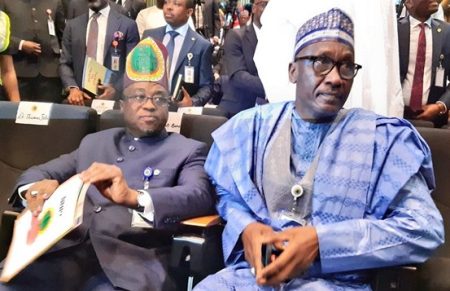*Needs $30bn in power, petroleum
26 August 2011, Sweetcrude, Lagos – The Nigerian government has expressed concern over the huge capital flight in the oil and gas sector which has been blamed largely on several years of dependency on foreign products and services, costing the nation about $300 billion.
The government also says the country would require a total investment of $30 billion annually to develop the entire energy industry.
This is coming as the nation’s power industry is facing system failure, especially with Egbin Thermal Power Plant lacking gas to generate electricity for the past three days. To improve power supply, the government said Thursday, that it had concluded plans to sell the 17 Power Holding Company of Nigeria, PHCN, successor companies for $100 billion.
Both the Minister of Petroleum Resources, Diezani Alison-Madueke, and the Minister of Power, Prof Barth Nnaji, who spoke at an energy conference in Lagos said gas would play a significant role in the development of petroleum and power sectors.
Alison-Madueke, who was represented by the Executive Secretary of the Nigerian Content Development and Monitoring Board (NCDMB), Mr. Ernest Nwapa, stated that Nigeria had lost $300 billion to capital flight.
She pointed out that to sustain the current scale of activities in the petroleum industry and fund the expected growth for the next few years, the oil and gas industry would need to spend about $20 billion annually.
The Power Minister, on his part, said that for Nigeria to meet its aspiration of being among the 20 largest economy in the world by the year 2020, the country would require an investment of $10 billion annually for the next 10 years.
While disclosing that the Federal Government had been spending between $1.5 billion and $2 billion annually for the upstream gas production for the domestic market alone, Alison-Madueke said the Federal Government would create the enabling environment that would allow capital to flow inwards and get retained for economic growth and development.
The Petroleum Resources Minister lamented that after many decades of oil exploration and production in Nigeria, contractors and multinational oil companies, which had engaged in business worth several hundred millions of dollars in Nigeria, had not left appreciable footprint in the petroleum industry.
She said: “Instead the trend has been to look to foreign countries for procurement of equipment, spares and technology in support of their operations in nigeria and Gulf of Guinea region.
She added: “The major operators have not helped matters by reliance on the importation of goods and services from abroad without making provisions to develop sustainable capabilities within Nigeria that would support life cycle operations in Nigeria. Instead more emphasis has been placed on speedy achievement of first oil, generation of revenue without paying attention to actions that add value to the economy.
“The cumulative effect of operating this model for so long is that in an industry that currently spends an average sum of $20 billion per annum, less than $2 billion is retained in the national economy and over $300 billion has been lost to capital flight in this way.
“Of more significance is the fact that this persistent practice has actually resulted in the export of millions of employment opportunities, opportunities for training, knowledge and technology transfer, opportunities for investment in facilities and infrastructure to support industry operations within Nigeria and denied indigenes of Nigeria the opportunity to participate in the most critical aspect of their national development activity.”
The Power Minister, who was represented at the event by his Special Adviser on Media, Mr. Cydon Adinuba, said: “This means that a whopping $100 billion is needed urgently, with generation along accounting for 35 per cent. This huge capital outlay is not available to the Federal Government, which has other competing needs.
“Nor can this amount be obtained within the country for the purpose of developing the power sector. This kind of money is available in the international money markets. Nigeria’s power sector can attract it,” he added
Nnaji said in spite of the global economic crisis and the reported decline in foreign direct investment, there had been a remarkable growth in international investor confidence in Nigeria’s power sector in the last one year.
He said: “A Brazilian company, for instance, has offered to buy the Federal Government’s stake in the 17 PHCN successor companies for $100 billion, and with the inauguration of the Electricity Bulk Trading Company Board last Tuesday, the investor’s confidence has been further bolstered.”




